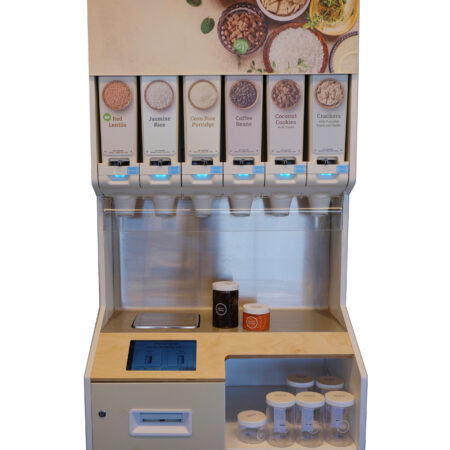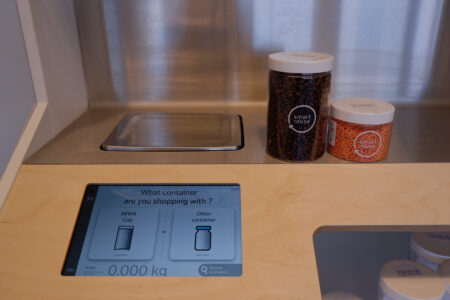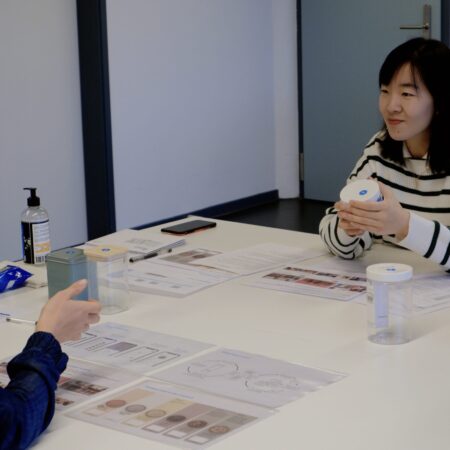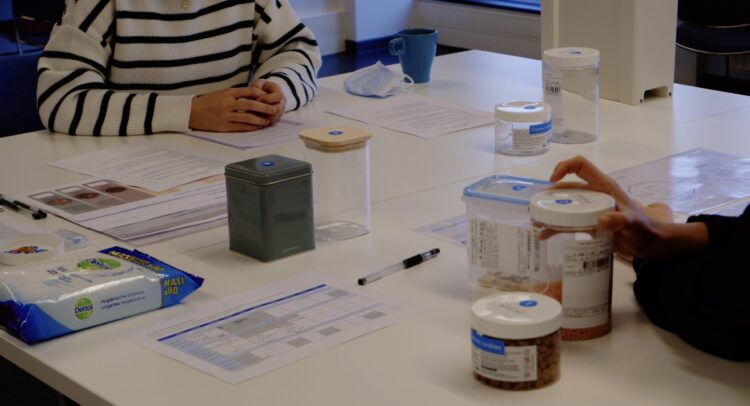How do consumers perceive and interact with the reusable packaging system?
Nov 2021 - ongoing
By: Miao, Xueqing
December 16, 2021

Why is plastic packaging a problem?
More than 99% of plastic materials are produced from non-renewable fossil fuels (e.g. natural gas, coal, and petroleum [1]). Every year, the EU produces 58 million tonnes of plastic [2]. Almost half of this plastic (40%) is used for packaging and most of it is never recycled – around 60% of plastic packaging is incinerated or ends up in landfills [2].
Plastic is known for its durability and resistance to degradation. This can be a problem, however, because these properties also make plastic nearly impossible to completely break down. Over time, discarded plastic materials degrade into tiny particles that pollute our food, air, and tap water, which can threaten wildlife and human health. There is widely recognized urgency to act on plastic pollution.
Expanding the use of reusable packaging
In this study, we are collaborating with MIWA, a company whose goal is to eliminate single use packaging throughout the whole supply chain. MIWA provides producers with smart reusable packaging capsules and retailers with dispensing shelves for products like bulk food items (https://www.miwa.eu/). The packaging capsules can be reused over 100 times. MIWA then recycles the material and to use in new capsules. This combination of reuse and recycling can thus increase the lifespan of a packaging product while also minimizing the depletion of those resources.

Consumers’ perception towards the reusable packaging system
Reusable packaging systems will only be successful if consumers are willing to adopt them in their daily lives. This PhD study will investigate consumer behaviour towards the reusable packaging system and identify barriers and enablers for consumers to choose a reusable packaging system as an alternative.
Research methods: Interviews and observations
During the study, 30 participants are invited through a consumer panel to the individual interviews. First, each participant will explore the MIWA system with two smart reusable cups and a container owned by the participant. An interview is then conducted to share the participant’s opinions regarding the system.
During the interview, we will ask each participant questions falling under four categories: general impressions and opinions regarding the product and service offered by the system, usability, positive and negative perceptions of the system, other applicable product opinions, environmental benefits offered by the system, and evaluation of other reusable packaging solutions in comparison to the MIWA system.


We will also observe and take notes of consumers’ interaction with the products during their exploration, such as the movement and operation sequence of the system, emotional changes and reactions on the accident issues.

After interviews, participants take a MIWA cup back home and to use. We will phone them after a couple of days for short interviews to assess their feelings and behaviours of using MIWA cups at home.
We decided to use the interview as the main research method because personal perspectives offer more in-depth and insightful information about consumer behaviours, motivations and experiences.
Scientific and Societal contributions
This study will offer a wide range of valuable insights because we will gather information from people using a real reusable packaging system. Information from the interviews and behavioural observations will not only enrich scientific knowledge of what factors will hinder or stimulate people to use reusable packaging, but will also provide practical suggestions on developing a desirable reusable packaging system.
By understanding users’expectations and concerns about reusable packaging, the company could improve the design attributes of the system to trigger positive consumer responses, encourage the desired reusing behaviours and increase the consumer adoption of the reusable packaging system in their daily groceries shopping. In this way, customers play an active role in transforming that way they utilize reusable packaging, which will in tern have a beneficial impact on the environment.
References
[1]https://www.unep.org/interactive/beat-plastic-pollution/
[2]https://plasticseurope.org/knowledge-hub/plastics-the-facts-2020/
[3]https://www.clearancesolutionsltd.co.uk/reuse-and-recycling/the-three-rs-the-difference-between-recycling-reusing/
Interested in Learning more?
Xueqing Miao, PhD Candidate
You can view Xueqing’s TU Delft profile here
Supervisory Team
Dr. Ruth Mugge
Dr. Lise Magnier
Research partner
MIWA Technologies
Ivana Sobolíková, Impact Strategy Director
https://www.miwa.eu/